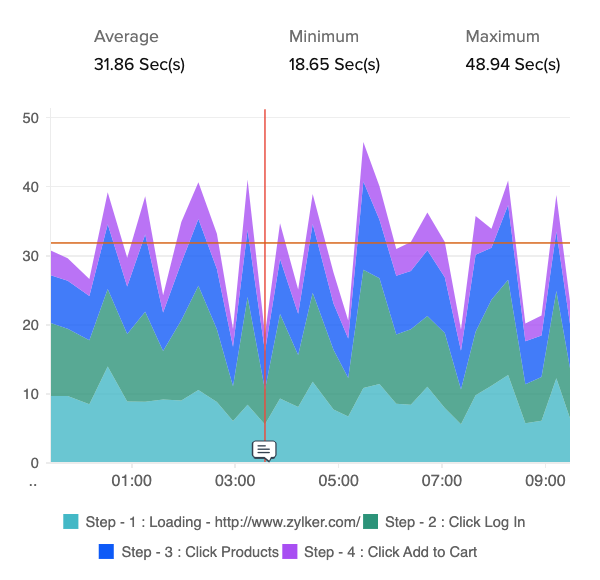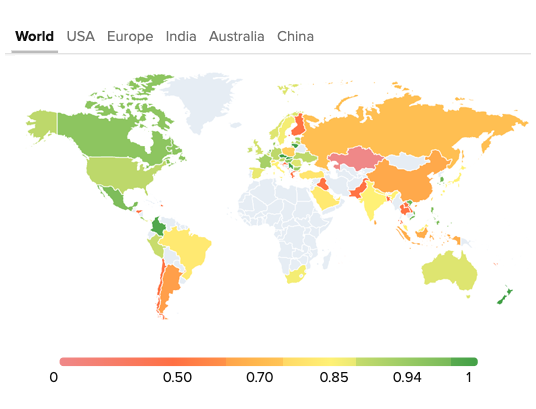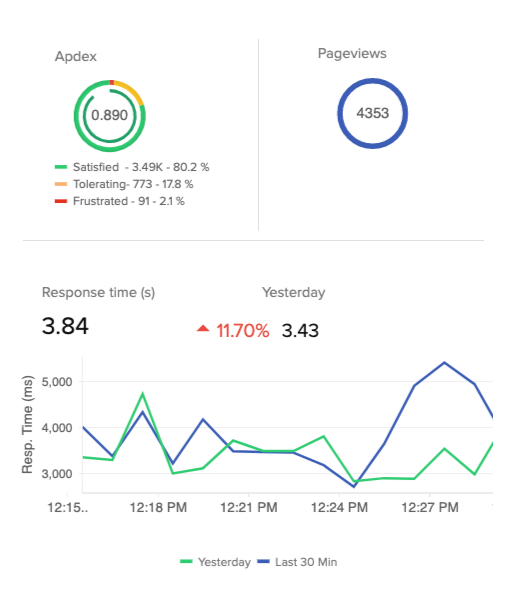Best website monitoring tool trusted by SMBs and enterprises!
Site24x7, from Zoho, is known for its end user experience monitoring solutions. With a global presence and cloud-native scalability, Site24x7 is the right choice for web hosting providers and businesses that wish to maintain their websites up and running.
250K+
Websites monitored by our largest enterprise customer
130
Cities across the globe from which websites are monitored
410 M
Uptime checks performed/day
See what our customers say about our website performance monitor
I was always very happy with the service at Site24x7.com. Notifications were easy to set up, and the reports were delivered quickly after any outages with clear explanations given. I highly recommend this tool for Website availability monitoring.

Enhance end-user experience with website performance monitoring
Track your website's uptime from 130+ global cities with our website monitoring service
Don't wait for users to report that your website is down. Continuously check the uptime of your IPv4/IPv6-enabled websites from relevant customer locations every one minute to ensure availability for your globally distributed users. Uptime or Website availability monitoring ensures that the webpage is accessible by all users from all the major locations. Configure intelligent thresholds and get alerted via multiple notification channels in the event of an outage. We also verify downtime from alternative locations to prevent false positives.
Boost your webpage speed quickly with a real browser monitor
Slow loading pages don't just frustrate users—they can also lead to page abandonment. Render your website using a real browser, and record load time for each static resource like documents, images, JavaScript, videos, and other files to identify assets that may be slowing your page down.
Global Status
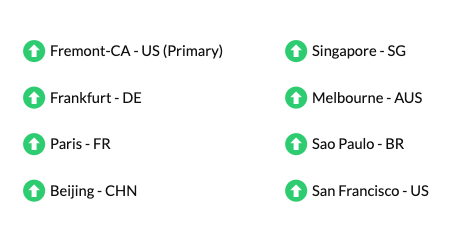
Waterfall chart
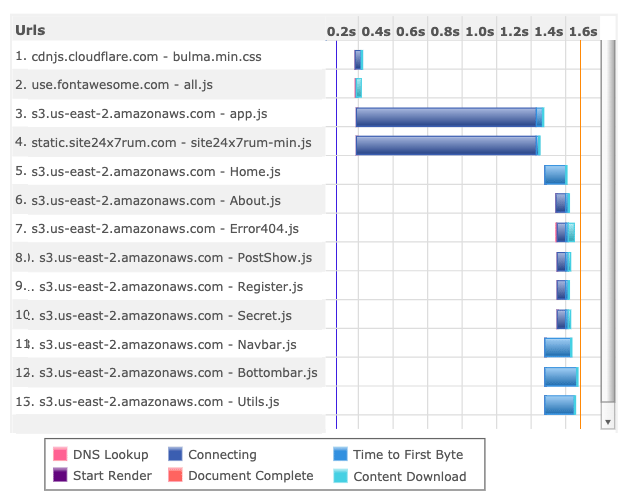
Response time
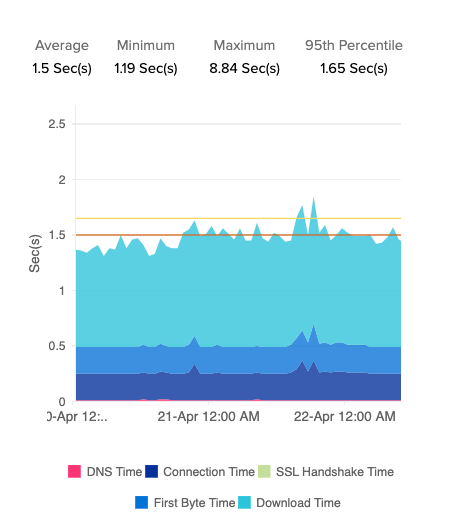
Secure your site with the best website monitoring tool
Ensure service reliability and never lose the trust of your users.
Website Defacement
Immediately detect unauthorized changes to the integrity of your website. Enable an automatic baseline to uncover everything from iframe/script injections to content modification.
SSL/TLS Certificate
Easily stay up to date with SSL/TLS certificate expiration. Setting up a check not only notifies you before they expire, but also monitors for certificate revocations, untrusted CAs, and SHA-1 fingerprint tampering.
Real-time blocklist check
Periodically run queries against popular blocklists like Surbl, SORBS, Invaluement, UCEPROTECT, and more to detect domains and IP addresses marked as spam.
Brand Reputation
Keep your business and users safe. Identify infected or malicious URLs and remove them from your site by running checks against Google's list of unsafe web resources.
Domain Expiry
When a domain expires, all the services attached to it will cease to work. Set up a simple check, renew early, retain ownership, and prevent any unintended service disruption.
Blocklist check
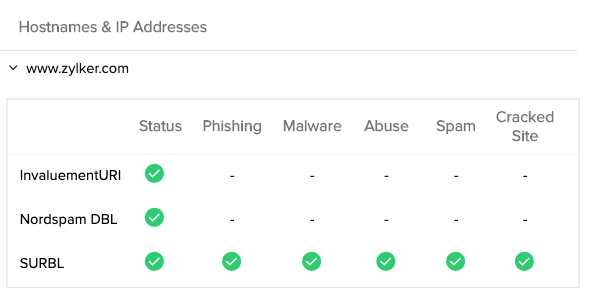
Web Risk API check

Defacement

Key features of our website monitoring tool
Gain comprehensive visibility across all the resources involved in delivering your service.
REST and SOAP APIs
Easily track the health of your app's REST API and SOAP endpoints. Add JSONPath or XPath assertions to ensure your API responses are returning the right data.
WebSocket
Monitor WebSocket endpoints to ensure real-time apps like live chat software and social media feeds on your website are working as expected.
Domain Name Server
Monitor resolution time, identify Domain Name Server (DNS) propagation issues, and verify the correctness of your domain's DNS records by performing lookups from multiple locations around the world.
Mail Delivery
Simulate an email flow end-to-end by sending and receiving test emails using your Simple Mail Transfer Protocol (SMTP), POP, and IMAP servers to measure latency and identify email deliverability issues.
File Transfer Protocol
Check upload and download performance for SSL/TLS-enabled FTP servers to make sure external file downloads are happening without any glitches.
TCP/IP Ports
Track the availability for any service that is listening on well-known ports (SMTP, POP3, IMAP, or FTP) and registered ports over the Transmission Control Protocol (TCP).
Internal Network
Complement our global monitoring network by installing a lightweight software component in your internal network to monitor resources behind the firewall.
Monitor from 3G/4G/5G networks
Understand how your site performs when accessed on low bandwidth connections offered by your mobile network carrier.
DNS resolution time
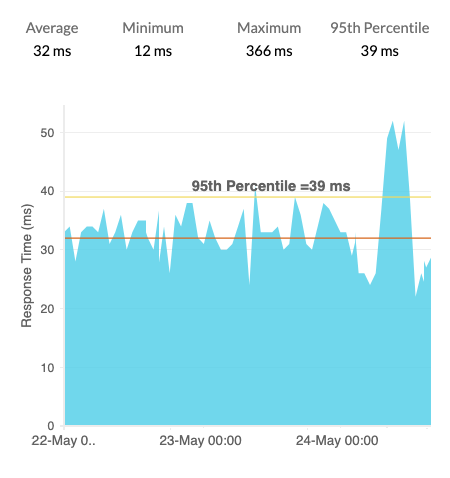
Transaction time by location
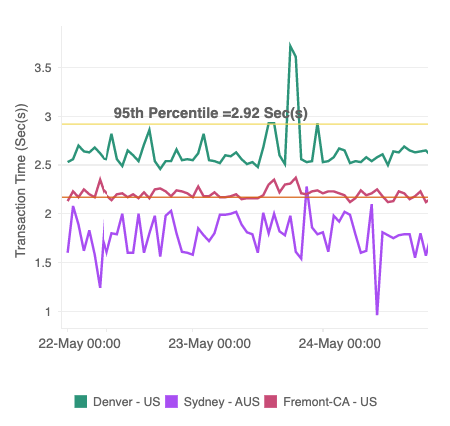
Content check
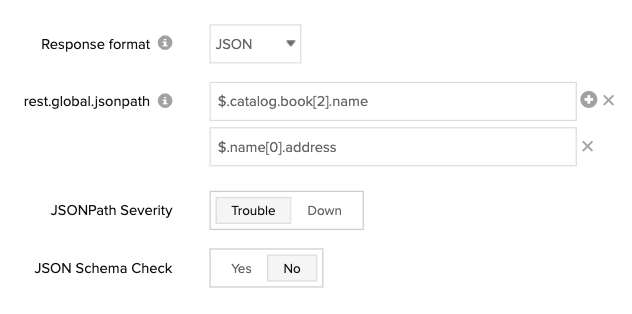
Keep your users informed of website incidents
Hosted status pages
High traffic days, third-party service outages, or service interruption to a hosting provider can render your website inaccessible. During times like these, proactively sending out updates regarding the status of your systems and what you are doing towards a fix can keep your customers happy. With our hosted status pages product, you can transparently communicate the real-time status of your web service and prevent unplanned downtime from affecting your bottom line
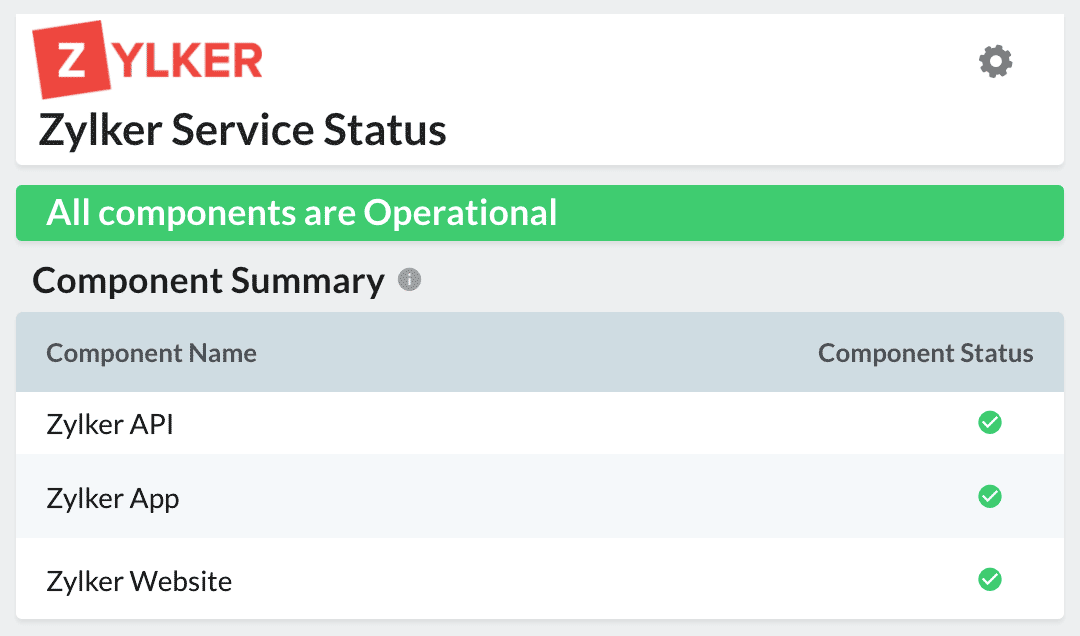
All about our website monitoring tool
Overview of website monitoring
1. What is website monitoring?
Website monitoring is a practice to ensure the availability, performance, and security of a website or web application. Website monitoring measures the end-user experience that a webpage provides and offers visibility into various metrics that can affect performance and availability.
2. What is a website performance monitor?
A website performance monitor measures website speed, reliability, and responsiveness. It tracks metrics like page load time, response time, and availability, helping you identify and fix performance issues. This improves user experience, optimizes websites, and ensures reliability.
3. Is website monitoring important for customer retention?
Yes, a glitch-free and trusted online experience is what every customer is looking forward to. It is said that the performance of a website is directly proportional to the rate of customer conversion, revenue, and end-user satisfaction. A slow loading page can lead to creating a bunch of dissatisfied customers who might leave your page in search of a fast loading, better performing web page. With web performance monitoring, fine-tune the performance of your page elements, ensure a better load time, and retain your customer base.
4. What are the types of website monitoring?
Website or URL monitoring is essential to ensure the smooth functioning of a website. Different web monitoring techniques are available to help identify and rectify issues that may impact website performance, , as well as practices like website content monitoring or checks that help in ensuring the integrity of the webpage content.
Improved security
Adhering to compliance standards ensures that your networks stay secure from emerging threats.
Web Availability monitoring
Website availability or uptime monitoring ensures that the webpage is accessible by all users from all the major locations.
Website Performance monitoring
Website performance monitoring mainly considers the webpage speed and tracks the page elements that might slow down the page.
Web Functionality monitoring
Functionality monitoring includes transaction monitors that interact with a webpage like a real user and ensures that each step in the transaction is working correctly.
5. How does a website monitoring tool work?
Website monitoring tools are essential for ensuring optimal uptime and performance. They continuously check your website from various locations worldwide, measuring factors like availability, load time, and response time. If the website fails to meet your performance standards, the tool alerts you, allowing you to identify quickly and address issues. This helps minimize disruptions and maintain a positive user experience.
6. How to monitor website performance?
Website performance monitoring tracks key metrics such as uptime, time to first byte, page load time, links on the page, user actions, database performance, server status, traffic, third-party service performance, page relevance, and usability. A website monitoring tool constantly checks these factors from multiple locations to detect any issues or loopholes affecting the end-user experience. Once issues are identified, the tool will trigger alerts to let the domain owner fix them before they impact the website's efficiency.
7. What are the challenges in website performance monitoring?
Website performance monitoring, while crucial for maintaining the health and performance of a website, comes with its own set of challenges. Some of the key challenges in website monitoring include:
Complexity of website architecture
Today's websites comprise numerous interconnected components. Monitoring each component's performance and availability individually poses complexity.
Diverse user locations and devices
Websites are accessed worldwide via various devices, browsers, and operating systems. Ensuring consistent performance across diverse locations and devices demands comprehensive monitoring capabilities.
Dynamic content and user interactions
Websites featuring dynamic and user-specific content, along with interactive features, present monitoring challenges. Traditional methods may struggle to accurately capture dynamic elements and user interactions.
Third-party dependencies
Websites often rely on third-party services like payment gateways and social media platforms. Monitoring these services' performance and identifying issues affecting website performance can be challenging.
Scalability and performance
Websites experience growth in traffic and complexity over time. Monitoring solutions must be scalable to handle large volumes of data and traffic effectively.
8. What are the advantages of website monitoring tools?
Website monitoring tools provide numerous benefits that help you maintain a reliable and efficient website, resulting in a better user experience, customer retention, and improved conversion rates. Some of the critical advantages of website monitoring tools include the following:
-
Ensuring a 24x7 online presence by monitoring your website's availability from various global locations.
-
Enhancing performance by monitoring critical metrics like page load time, user actions, and database performance.
-
Staying away from downtime by identifying and addressing potential issues before they lead to significant downtime.
-
Building customer trust and improving the end-user experience by providing a reliable and efficient website.
-
Retaining customers by ensuring that your website is always accessible and functioning correctly.
-
Increasing conversion rates by providing a better user experience and ensuring your website is available and functioning correctly.
9. Is there a free website monitoring tool?
Yes, with our free website monitoring tool, you can stay updated on your website's availability, reduce downtime, and assure a better digital experience for your end users.






